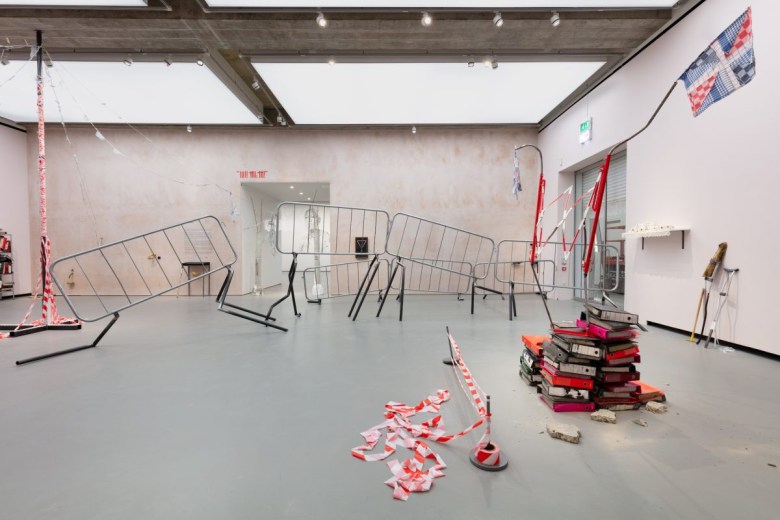Jesse Darling has won this year’s Turner Prize, given annually to a British visual artist by the Tate museums. Rather than serving as a lifetime achievement prize, the £25,000 (~$31,480) award is presented based on artists’ recent bodies of work. This year’s shortlisted finalists included Ghislaine Leung, Rory Pilgrim and Barbara Walker, each of whom will receive £10,000 (~$12,595).
Darling often uses everyday and industrial materials such as concrete, tape, and barbed wire to create multidisciplinary works that reflect on class divisions and challenge conventional notions of British identity. He addressed these ideas in an acceptance speech for the award today, December 5, decrying what he perceives as the Conservative-led government’s vision that art and culture are “only for particular kinds of people from particular socio-economic backgrounds.” After his speech, Darling pulled a Palestinian flag from his pocket and waved it, according to the BBC.
Each year, all four Turner Prize nominees creators are featured in an exhibition held at London’s Tate Modern on alternating years. The 2023 finalists are showing their work at the United Kingdom’s Towner Eastbourne contemporary art space through April 14, 2024.

The Turner Prize has been criticized in the past for its biases, including an age limit of 50 years for recipients that was finally abolished in 2016. Last year’s winner was 66-year-old Veronica Ryan, a Caribbean-British sculptor whose organic forms consider themes of migration and cultural memory.
In 2019, controversy arose when it came to light that the sponsoring company Stagecoach had funded homophobic political campaigns in the UK. That year, the four nominees — Lawrence Abu Hamdan, Helen Cammock, Oscar Murillo, and Tai Shani — decided to split the prize money equally. They collectively told the judge that “the politics we deal with differ greatly, and for us it would feel problematic if they were pitted against each other.”